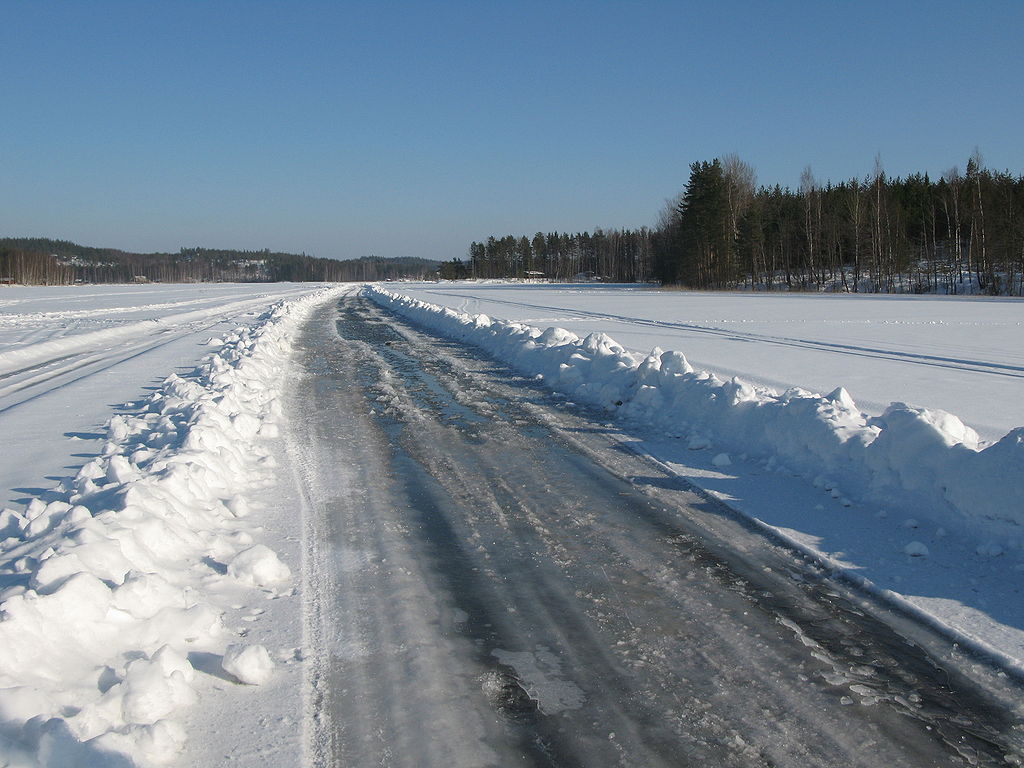Road salt alternatives are gaining popularity in homes, counties, and big cities across the country as a way to keep streets and driveways safe without hurting the environment. According to the Transportation Research Board, approximately 10 million tons of road salt are used on highways, byways, and neighborhood streets each winter. This comes at a price of hundreds of millions of dollars per year, but the cost to the environment is much greater.
How Road Salt Affects the Environment
Road salt—which is so harsh it's been known to corrode cars—gets dispersed into streams, lakes, and rivers through runoff, and much of the sodium and chloride ions that make up the product remain in the ground.
Smithsonian Magazine explains that approximately 40 percent of the country's urban streams have chloride levels that pose a threat to aquatic life, largely due to road salt. Canada has even gone so far as to categorize road salt as a toxin.
If you are looking for an alternative that eliminates the negative effects of road salt and keeps your driveway safe this winter, don't worry. There are several products that will get rid of ice and free up you and your family to enjoy the best activities of the season while keeping your exterior entrance safe for pets, people, and the surrounding property
1. Sugar Beet Juice
Beets are a tasty addition to salads, but beet juice has become a popular alternative to road salt for millions of people across North America. Beet Heet (and products like it) offer a highly concentrated, high-performance deicing agent that is 99 percent biodegradable and can be applied directly to ice for the least impact on the environment. Sugar beet juice can also be incorporated into traditional road salt to increase its effectiveness and, ultimately, reduce the amount of damaging materials on your driveway.
2. Calcium Magnesium Acetate
Calcium magnesium acetate (CMA) may sound like a complicated compound only available in a research facility, but it can actually be purchased at common department stores. A study published in the Journal of Policy Analysis and Management found that CMA is an effective and environmentally harmless salt substitute, but it is a bit on the pricey side.
Although monetary cost is typically the deciding factor in purchases by cities and states, you can take a stand yourself and let your dollar speak for the neighborhood. By clearing away slick sidewalks with environmentally gentle products, you're protecting your pets, surrounding yard, and loved ones.
3. Sand
The most prevalent of the road salt alternatives is also the most cost-effective: sand. The impact sand has on surrounding waterways and plants is extremely minimal. The key to using sand as an effective treatment for ice, however, is to keep it on the surface. It acts as a means of traction, rather than a melting element.

A Quick Note about Kitty Litter...
For years, kitty litter has been recommended as a helpful product to have on hand in case your car gets stuck in the snow. Although cat litter can give you traction on slick surfaces, the clay in many brands can clump—as it is meant to—and ice over after the next storm. Also, keep in mind clay can't decompose, so it will stick around in the environment long after you free your car.
For the best deicing results with the least amount of environmental impact, try one of the methods above or do some additional research on safe and effective road-clearing methods.
What's your favorite road salt alternative? Share your deicing tips with us on Twitter!
Image Sources: Wikimedia Commons | Flickr | Flickr
The views and opinions expressed in any guest post featured on our site are those of the guest author and do not necessarily reflect the opinions and views of Tom's of Maine.
